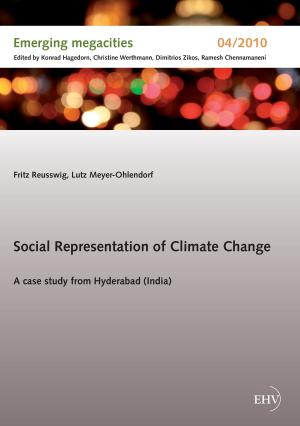Fritz Reusswig: 4 books
by David Criekemans, Thijs van de Graaf, Thomas Sattich
Language: English
Release Date: January 11, 2018
Language: English
Release Date: January 11, 2018
Renewables are a game changer for interstate energy relations. Their abundance and intermittency, possibilities for decentral generation and use of rare earth materials, and generally electric nature of transportation make them very different from fossil fuels. What do these geographic and technical...
Methods for Stakeholder Analysis
Exploring actor constellations in transition and change processes towards sustainable resource use and the case of Hyderabad, India
Language: English
Release Date: August 18, 2012
Currently 23 cities exceed the 10 million inhabitants’ threshold. The number of world’s megacities is expected to grow to 39 in 2025 with 32 of these in emerging economies. While today cities cater for over half of the world’s population, they are facing ever increasing environmental problems....
Partners for a Low-Carbon Hyderabad
A stakeholder analysis with respect to “Lifestyle Dynamics and Climate Change”
Language: English
Release Date: January 11, 2013
This paper analyses the structure of local, regional and national stakeholders that might be relevant for a transition of Hyderabad into a low-carbon megacity. The main angle of the stakeholder selection in this report is defined by the leading question of our research: How do (local) lifestyle dynamics...
Social Representation of Climate Change
A case study from Hyderabad (India)
Language: English
Release Date: January 15, 2013
In this report we underline the importance of studying the social representation of climate change for climate policy, especially in a democracy such as India. Social representations are, from a social science point of view, no epiphenomena of ‘real’ issues, but the very fabric of individual reality...



